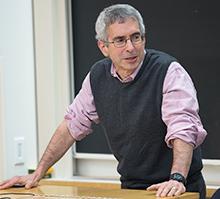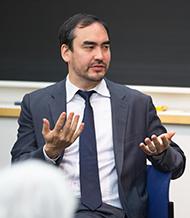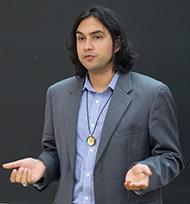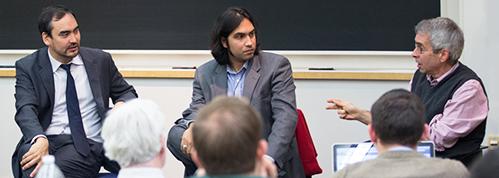The Moreland Commission: What Happened?
Columbia Law School Professors Richard Briffault and Tim Wu Discuss NY's Short-Lived Anti-Corruption Commission with its Former Special Counsel Janos Marton
New York, December 5, 2014—Advocates of government ethics reform cheered in 2013 when New York Governor Andrew Cuomo created the Commission to Investigate Public Corruption, popularly known as the Moreland Commission. Less than a year later, however, Cuomo abruptly shut down the commission, setting off an ongoing controversy.
| Professor Richard Briffault, a former member of the Moreland Commission |
Columbia Law School professors Richard Briffault and Tim Wu joined Moreland Commission special counsel Janos Marton Nov. 17 for a postmortem examining what happened and how best to clean up government in the future. Briffault served as a member of the commission, named for a 1907 law granting governors authority to investigate state bodies, while Wu made ethics reform a centerpiece of his recent campaign to become New York’s lieutenant governor.
“The Moreland Commission grew out of a series of scandals that beset the state legislature,” said Briffault, the Joseph P. Chamberlain Professor of Legislation. “It was said more people left office from indictments than electoral defeats.”
| Professor Tim Wu, a former candidate for New York lieutenant governor |
“To everyone’s extreme surprise, at the end of March 2014 the legislature passed a few small reform laws and the governor declared victory,” said Briffault. “He all but disbanded the commission by press release.”
Marton said New York election law is so porous that many seemingly corrupt behaviors are not technically illegal. Because the New York state legislature is “part-time,” lawmakers are eligible to seek other sources of income and have wide latitude to manage their finances in ways Marton said are prone to abuse.
“We looked at things that were legal but shouldn’t be,” said Marton. “Actual criminal activity was the exception because the laws are very difficult to break.”
| Janos Morton, former special counsel to the Moreland Commission |
Wu said that public disgust with the system and the commission’s unceremonious end boosted his ultimately unsuccessful campaign.
“Getting involved with New York state politics, I felt I looked into the heart of darkness, far worse than I expected, and I’ve felt the chill ever since,” said Wu, the Isidor and Seville Sulzbacher Professor of Law.
Briffault agreed that the state of affairs is concerning.
“New York state continues to face very serious ethical and corruption challenges and there is not much reason to believe the government will reform itself,” Briffault said. “Any change will have to come from outside of Albany.”
The talk was co-sponsored by the Columbia Law Democrats and the Poliak Center at Columbia Journalism School.



